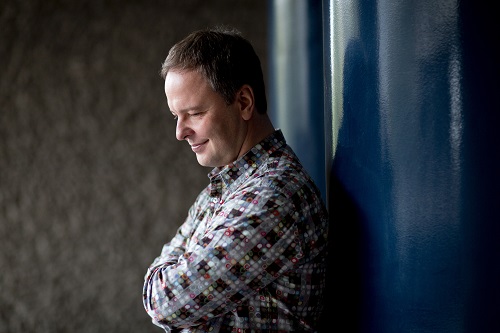 United Kingdom Elgar – The Dream of Gerontius: Stuart Skelton (tenor), Alice Coote (mezzo-soprano), Alan Ewing (bass), BBC Symphony Chorus & Orchestra / Sakari Oramo (conductor). Barbican Hall, London, 16.5.2018. (CC)
United Kingdom Elgar – The Dream of Gerontius: Stuart Skelton (tenor), Alice Coote (mezzo-soprano), Alan Ewing (bass), BBC Symphony Chorus & Orchestra / Sakari Oramo (conductor). Barbican Hall, London, 16.5.2018. (CC)

Just over two years ago, the LSO under Sir Mark Elder gave a beautiful account of Elgar’s Dream 0f Gerontius (review). One of the soloists on that occasion also took part in this performance: the wonderful mezzo, Alice Coote.
This time, it was Sakari Oramo at the helm (Oramo has extended his contract with the BBCSO until 2022, it was recently announced). His performance of Elgar’s masterpiece was itself highly impressive, with very few moments in which the dramatic narrative lost its thread. The BBC strings offered a lushness not always associated with them; the brass section was in fine fettle throughout. While a slightly smudged bassoon attack at the opening might not have augured well, the ensuing standard was remarkable.
As Gerontius himself, Stuart Skelton, an heroic tenor much associated with Wagner, gave a creditable account, the odd indistinct word notwithstanding. There could be no doubting Skelton’s vocal heft, right from ‘Sanctus fortis, Sanctus Deus’; he offers a fervent Gerontius with a fine sense of Elgarian line. Skelton’s eloquently phrased soliloquy at the beginning of Part Two was perfectly done, accompanied by superbly quiet and controlled strings; his lyrical legato at ‘Now that the hour is come’ was perfectly judged.
Alice Coote, who entered silently between the two parts of the work along with a sole extra percussionist, was almost beyond criticism; gone was any edge to the voice heard in the LSO performance, replaced by sonic beauty coupled with full attunement to the role. Her voice remains satisfyingly full, absolutely capable of the radiance required at higher levels, but it was the interiorisation of the quieter moments that was truly touching. The sense of wonder she conveyed at ‘Hark to those sounds’ was miraculous.
While Alan Ewing has a large voice (needed for the Priest’s ‘Proficiscere’), he is not wholly authoritative, and a rather woolly aspect to his sound reminds me of the bass Richard Angas; his Angel of the Agony was similarly unconvincing, not sounding fully inside the role.
The BBC Symphony Chorus was not quite as strong as might have been expected: the opening choral number, ‘Kyrie eleison’, was fragile, but not in the best way; their ensuing ‘Be merciful’ was better, and by their ‘Go, in the name of Angels and Archangels’, they achieved a radiant blaze of sound. The major problem was the Chorus of Demons. These were the nicest demons I’ve ever encountered; cute cuddly-toy versions of Underworld-dwellers and therefore missing the vital element of contrast Elgar offers here. Unbelievably, the tension actually sagged in the Demons’ second outing.
Elgar’s Dream rarely fails to hit the spot; it is one of the composer’s deepest, finest utterances. Oramo is a fine Elgarian – and how wonderful to hear the BBC Symphony Orchestra in such fine fettle.
Colin Clarke
For the most part I agree with this, but from the Circle Stuart Skelton was incomprehensible and Alice Coote’s quieter moments were far too often overwhelmed by the orchestra. Add in Sakari Oramo’s sometimes rushed tempi and this was no more than a three-and-a-half-star performance.